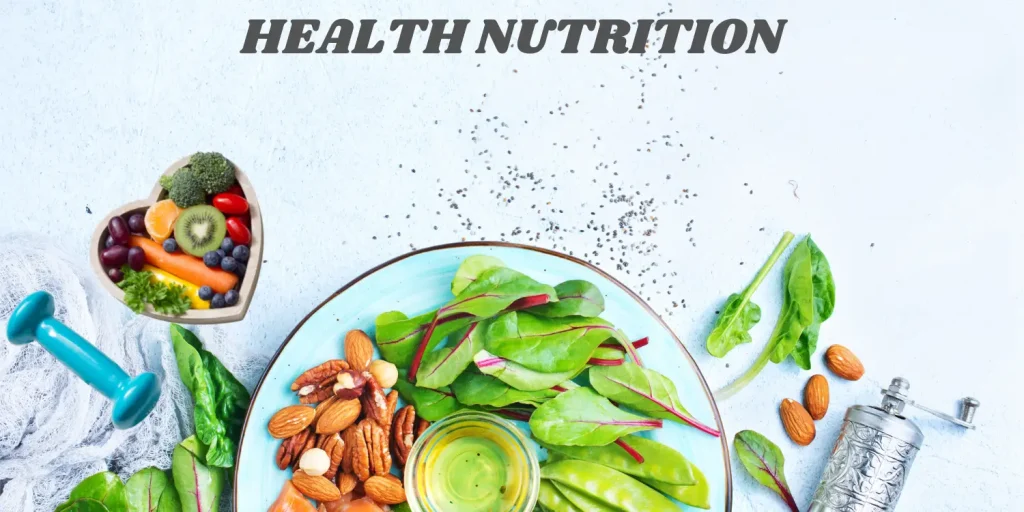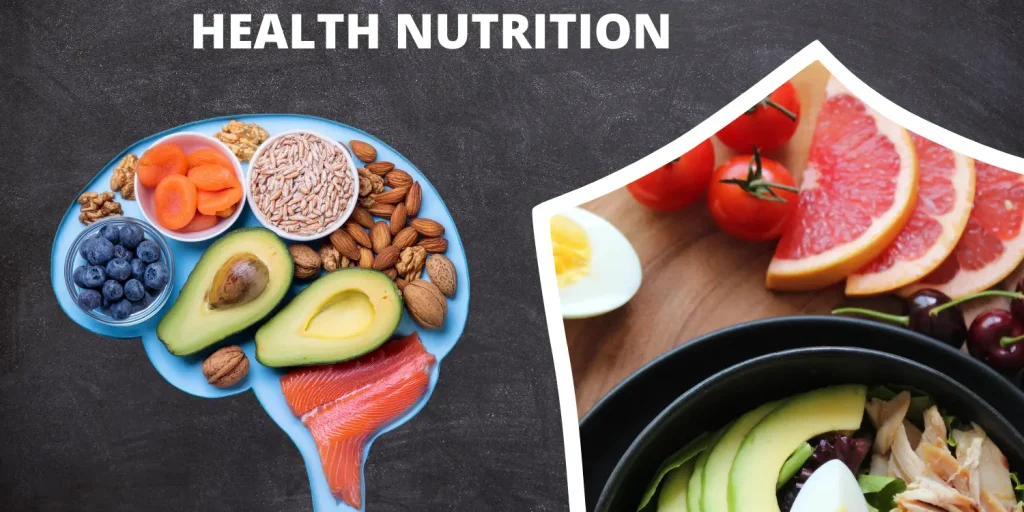Introduction to Health Nutrition
As one of the determinants of individual Health Nutrition is among the most direct path to a healthy life. It also comprises a study on the impact of nutritional intake on body growth and development and health status prevention. Apart from providing muscle with energy food also provides all the proteins, lipids, carbohydrates, vitamins and traces elements, necessary for an efficient performing body.
It can safely be said that nutrition maintenance will always be important in today’s world. Reduced disease susceptibility, enhanced cognitive faculties and high nutrition make worker’s productivity better and health better as well. Sustenance meanwhile unhealthy diets are associated with several major ailments majoring diabetes, obesity, cancer and heart ailment. The vanity of the connection between nutrition and health is best understood when it probably motivates the choice of specialized diets based on individual or cultural practices and goals.
Besides personal gain, which results from Health Nutrition diet, health of the environment and the society is also affected. Debates on topics such as food apartheid and diet disparities emerge from the current focus on the global regime of climate change and conversion to inefficient and malnutrition-inducing food chains. This idea of general health, due to the increase in knowledge about nutrition and mental status, has been embraced.
Right though there are indispensable macronutrients and micronutrients and genetics, the way they work together in context to develop individual diet and the contribution which digestive health bring into picture is ever changing due to advancement in nutritional science. If they understand these concepts, then people can use all of the mentioned techniques to improve their health. Most of all, the focus of Health Nutrition aims at enhancing people’s abilities to make the right choices and thus promoting a Health Nutrition society, prosperity and long life. Depending on how they are presented, assessed, and applied, each idea and cognition regarding nutrition holds the potential for changing people’s lives and building well-establishing prosperous livelihoods.

What is Health Nutrition Used For?
Maintaining and increasing the overall health of any society is instilled on the basics of proper feeding habits. It involves capacity of putting into the body what is necessary for the body to function properly such things as water, proteins fats carbohydrates and vitamins and minerals. Thus, Health Nutrition is an attempt to ensure the body receives enough foods to enhance mind, soul and body health.
One of the most relevant uses of health nutrition is disease prevention is one of the most relevant uses of health nutrition. A well balanced diet also preserves and increases mass and strength of the immune system which helps in preventing diseases such as diabetes, cardiovascular diseases and more than one type of cancer. The examples of correctly promoting the improvement of people’s health include the use of antioxidant containing products, such as fruits and vegetables, to overcome issues with oxidative stress and inflammation that could lead to cell damage.
Good eating also helps improve on ones weight and energy production to optimum health levels. Nutrient-rich foods facilitate metabolic activities and provides power for the tasks that you engage in daily. A good diet regulates hunger, hence, it is easier to restrain oneself from eating foods that are rich in energy yet cold in nutrients thus resulting in gain of weight.
In addition, the ability to grow and develop is built on the ability to eat properly. Proteins are central for development of muscles for children and teen agers while sufficient intake of minerals ; calcium and vitamin D helps in bone development. Healthy people the adult population for that matter, exercise proper nourishment and hence they do not experience, the decreased muscle power or the diminution of the brain functions when they have reached a certain age.
In addition, the abovementioned proportion of physical health also has a significant positive effect on mental health. Some minerals including magnesium, B complex, and omega 3 acids are effective in enhancing mood, boosting brain activity and reducing cases of anxiety and depression.
All in all, the aim of Health Nutrition is to promote, protect and develop the capability of effective functioning of brain, emotions, and other bodily parts. The human body functions can be supported, diseases can be prevented, and fuller, more energetic lives can be led through educated eating.

Why is Nutrition Important for Health?
It is therefore a prerequisite for sustaining and enhancing general Health Nutrition is safeguarded. Energy, love, and essential vitamins, minerals and nutrients upon which people’s bodies depend on are sourced from foods. Eating well is crucial the feature of the Health Nutrition condition because the balanced diet affects the human’s mental and emotional state.
Physical Well-Being
Every tissue in our body requires building blocks and nutrients in order to grow, repair, and so that the body can produce energy. Fats, protein, and carbohydrates are of central importance to the body— serving as the major energy supply and as structural materials. Protein is used in building muscles and repair tissues, carbohydrates in performing daily tasks and heathy fats in forming hormones and proper functions of the brain. Micronutrients are items just as important as macronutrients and include minerals and vitamins. For instance, iron enhances oxygen transport by blood and calcium along with vitamin D strengthen bones.
The consequences of malnutrition include many health issues due to either undernutrition or nutrient excess consumed in amounts larger than recommended. Inadequate essential nutrients lead to anaemia, low physical immunity, and stunted growth. While, if a large portion of unhealthy foods is eaten, it results in diabetes, heart disease and obesity. Weight management and reducing the odds of possible chronic diseases require finding that perfect balance.
Emotional and Mental Health
Health Nutrition plays a huge roll in a person’s state of mind, this is because it is scientifically proven that mental health can be affected by nutrition. A lot of nutrients have been linked to improved organ function and a decreased likelihood of mental disorders, including antioxidants, B complex vitamins and omega 3 fatty acids. For example, antioxidant counteracts oxidation that interferes with the brain, whereas omega-3 fatty acids found in fish lessen the signs of anxiety and sadness.
On the other hand, diet high in processed foods, unwanted fats and added sweets is bad for the mood and hinders cognitive performance. Sleep deprivation, increased stress and even predisposition to diseases such as depression and Alzheimer diseases are effects of poor diet.
Pest management and staying power
It is an effective program that transforms a person’s life through a Health Nutrition diet of fruits, vegetables, whole grain products, lean meats and healthy fat. Foods containing antioxidants and fiber bring down cholesterol; reduce inflammation, and prevent heart diseases and cancers. There is also improvement of long term health through adequate water intake, less consumption of foods rich in sugars, salts and saturated fats.
In summary, it may be said that the fundamental for a healthy life is a correct diet. It shields against diseases, enhances energy within the body and helps in the sharpening of the brain. There are certain ways in which individuals can follow and thereby enhance their general health and a healthy prospect; to begin with people should note that minds eating and focusing on nutrient-rich foods are key to a better quality life.

What are 7 types of nutrition?
Health Nutrition refers to the way in which foods and specific nutrients influence growth, development, and Health Nutrition of the human body. The knowledge of different forms of nutrition is important in order to support a balanced diet as well as develop the best health. We examine seven major categories of nutrition below:
1. Carbs
Carbohydrates are the principal energy sources in the body. They are converted to glucose by which many bodily functions take place including thinking and muscle contraction. There are two types of carbohydrates: simple and complicated. Categorized under complex carbs are foods high in sugar supply the body with energy in the shortest time but are not beneficial in the long run. The complex carbs contained in whole grains, vegetables and legumes promote digestion and act as slow burners since energy release is slow and they contain fiber.
2. Proteins
They are fundamental to the correct growth of tissues in the body and for maintaining as well as repairing body tissues, including muscles, skin and organs. Some of them are synthesized in the human body while others called essential amino acids must be consumed from the foods we take. Meats and fish, eggs, cheeses, foods containing soybean, nuts, seeds and legumes are foods rich in protein. Further more, proteins contributed in synthesis of the hormones, to work of the enzyme, and to immune system.
3. Fats
Apart from being a concentrated form of energy, fats play a vital role in the formation of body shield, protection of organs and helping in the absorption of fats soluble vitamins which include vitamin A, D, E and k. There are three basic kinds of fats: Saturated, these are found in animal product and some plant oils, unsaturated these are better fats commonly found in avocado, nuts and olive oil, trans, these are usually found in processed meals and are unhealthy. Consumption of good fats should be moderate for indeed, fats form a core constituent of our general health.
4. Vitamins
Vitamins are Health Nutrition occurring chemicals that are necessary for the body in small amounts for functions including cell building and repair,boosting the immune system, and biochemical reactions including energy metabolism. They are separated into two groups: the fat soluble vitamins – A, D, E, K and the water soluble vitamins – the B-complex and vitamin C. This is because a proper meal that contains adequate vitamins includes the group of fruits and vegetables, whole grain products, protein foods, and other complex carbohydrates. Vitamin deficiency can have serious effects on health such as failure of bones and impaired immunity just to mention but a few.
5. Minerals
These are the inorganic material’s required by the body for many of its activities including nerve impulse transmission, maintenance of fluids balance and bone formation. Minerals include calcium, potassium, iron, magnesium and zinc. Iron is needed to move oxygen in the blood and calcium is needed to help build strong teeth and bones. It is known that dairy products, leafy greens, meats, nuts, and seeds contain these nutrient.
6. Eau The human body contains a lot of water and water is important for human existence. These are Nutrient delivery, Thermoregulation, Digestive support/ Gastrointestinal motility and waste elimination. Taking the required amount of water is important because lack of it distorts normal body and brain functioning. There is general requirement for people to drink eight to ten glasses of water per day, though it might be different for everyone.
7. Fibre
On type of carbohydrate that is very useful for the overall health of the digestive system is fiber. There are two types of it: soluble and insoluble. Whereas insoluble fiber makes it easier to have bowel movements, soluble fiber can reduce cholesterol and blood sugar levels. Some examples of high fiber foods are fruits, vegetables, whole grain products and any food derived from legumes. There are convincing evidences that intake of fiber reduces chances of getting diabetes, cardiovascular diseases and some forms of cancer diseases.

How Does It Work: Health and Nutrition?
Health Nutrition are another pair of cornerstones of general well-being, which also share a connection. The utilisation and assimilation of foods in maintaining growth and health and in carrying on the proper coordination of all the body activities are called nutrition. But how does this works? Here is a detailed analysis of the structures and processes that relate diet to health.
Nutrients’ Function
Micronutrients and macronutrients are the compounds that constitute the food we take daily in form of vitamins and minerals, fats, proteins, and carbohydrates respectively. The body uses certain nutrients for particular purposes:
1. The carbohydrates are the main source of energy within the body. They refer to substances that on their consumption are broken down into glucose to fuel organs, tissues, and cells. Instead, whole grains, vegetables and legumes provide the slow release energy yielding complex carbohydrates that are beneficial to the digestive tracts.
2. Proteins: proteins are needed in the maintenance, growth or rebuilding of the tissues that is required in the body. They are converted into amino acids, a form the body uses in producing hormones, enzymes, muscles and other materials.
3. Fats: Proper absorption of fat soluble vitamins A, D, E and K, structure and functioning of cells and brain requires healthy fats as found in nuts, seeds and seafoods.
4. Minerals and Vitamins: There are so many biochemical activities that are backed up by these micronutrients. For instance, calcium builds the bones, the iron enhances the ability of blood to carry oxygen and vitamin C tightensImmune system.
Absorption and Digestion
Digestive system is the first part of the journey of nutrients. During consumption food particles are mechanically and chemically disintegrated with the help of enzymes or stomach acid and mechanically pre digestion or churning of food by teeth. Talking about digestion processes and nutrient absorption – A small intestine takes significant importance. So with enough surfaces being produced namely villi as miniature structures called microvilli let nutrients pass through the bloodstream to the body’s entire cells.
Metabolism of Energy
Some of the nutrients are broken down for provision of energy after digestion has taken place. ATP a molecule of storage and exchange of energy in the body is synthesized from glucose, lipid, and proteins by the mitochondria in the cells. All the functions of the body from electrical firing or the brain to the contractions of muscles are driven by this energy.
Providing Help with Motor Tasks
As a reminder, we have mentioned that every nutrient has a role in maintaining health.
• Immune System: There are certain nutrients like Vitamin C, Zinc, omega III fatty acids that builds up the immune system of human body.
• Heart Health: Cardiovascular diseases are prevented by the regular intake of fibre and good fats, while avoiding foods containing trans fats.
• Brain Function: Several nutrients including an antioxidant, B vitamins as well as omega-3 fatty acids are known to influence the brain health and cognitive feature.
• Bone Strength: Calcium, magnesium, and vitamin D are beneficial and healthy, can will prevent osteoporosis and maintain bone health.
Keeping Nutrition in Balance
Eating a recommended diet is crucial in taking care of a human body. Low dietary quality is a condition that has been associated with chronic diseases, high intakes of some foods like sweets and high saturated fats will lead to diseases like obesity diabetes and heart diseases. However, lack of surpluses can cause the immune system to be compromised, low nutrition levels and slow human growth.
A Holistic Method
It means that nutrition and health involve more than just the foodstuffs that you take. Nutrition also involves other aspects such as sleep, stress, level of physical activity and level of fluid intake. Evaluating in a holistic way ensures all body structures are efficient, long life and quality life is offered.
Nutrition is actually the provision of energy,asia for all the metabolic reactions and protection against diseases. Understanding how it works helps people to apply the knowledge as a guideline in order to make right decisions that shall enhance person’s activity level and healthy life.

How to Improve Nutritional Health
It is seen that optimal general health, improved resistance mechanism, and reduced vulnerability to chronic ailments all require Health Nutrition. If you make good decisions for yourself and alter your eating habits for the better, it will be possible to improve your nutrition sharply. The following are some doable tactics to enhance your dietary well-being:
1. Make Dietary Changes
The first thing that is known by most people about nutrition is that it has to be balanced. These should the major food groups; grains, fruits, vegetables, meat and animal products and fats and oils. Ideally, one should include twice as many colorful fruit and vegetables, a one quarter of whole grain products, and the remaining quarter contain lean poultry, beans, or fish.
2. Pick Nutritious, Whole Foods
Take as less processed foods as possible, as they are full of either excessive sodium, sugar, unhealthy fats and artificial preservatives. If you want to hit the mark on optimal nutrient intake, go for whole foods such as fresh fruits and vegetables, nuts, seeds, and whole grain.
3. Keep an eye on portion sizes
It is shown that proliferation of food products can lead to decrease in consumers’ nutrition and increase in their weight even if they consume Health Nutrition food only. Portion control can be stoically been achieved by estimating serving sizes, using small utensils and dishes, and not eating while distracted by for instance the use of gadgets.
4. Drink plenty of water
Proper hydration plays a crucial role in general wellbeing of people. These and many more faucet with a lot of fresh water all through out the day to aid in the enhancement of energy, absorption of nutrients and digestion. For quality, substitute between water or herbal teas or flavored water for sodas or any other sugary beverages.
5. Reduce Salt and Added Sugars
Some of the Health Nutrition effects of taking too much sugar and sodium are obesity, high blood pressure, heart disease among others. Cook foods using natural spices so as to give the necessary taste to it and avoid using salt and sugars by reading the label.
6. Engage in Mindful Eating
Listen for your hunger and fullness cues or hunger and satisfaction signals. Do not eat when you are bored or feel stressed and instead, make sure that you eat to your good health and savor every food. Mindful eating decreases consumption of food and improves the experience of meals.
7. Make a meal and snack plan
In addition to helping one sidestep bad decisions, meal planning ensures the efficient provision of edible plate foods all the time. For purposes of keeping your energy level up, then adopt Health Nutrition snacks such as an apple, almonds or yogurt.
8. Look for Expert Advice
In case you require personal advice get in touch with a professional dietitian or a nutritionist if you have certain health problems or some specific needs regarding your diet.
It provides decent guidance to continue living a more vibrant, healthier life and work on the improvement of your nutritional health based on four main actions that are integrated into your everyday practice.

Features of Health Nutrition
A healthy diet pattern is in fact the basic of nutrition which is a concept consisting of ideas and techniques. The principle purpose of nutrition is to provide the body with the essential nutrients that can support growth, repair as well as its proper functioning. Some essential components of healthy nutrition are listed below:
1. A well-balanced diet
The principle of healthy nutrition involves the daily intake of adequate nutrients. This contains the right proportion of vitamins and minerals known as the micronutrients and fats, proteins and carbohydrates known as macronutrients. Each of them maintains the body procedings differently; for example, immunological or energy processes.
2. Sufficient Hydration
Water is an important ingredient in life and should be included in our diets. It transport foods, regulate temperature, aids digestion, as well as get rid of wastes.
3. Density of Nutrients
The main food types elaborated in the health nutrition are foods rich in nutrients and energy poor. These are examples of nutrient dense foods such as fruits and vegetables, whole grains, lean meats and healthy fat.
4. Control of Portion Size
Serving size reduces excessive intake of food and keeps the body in a healthy weight. Described by a then thriving nutritionist lies the paradox that larger quantities of nutritious foods are as toxic as preservatives.
5. Tailored Diet
Health nutrition accepts individual variables, including age, gender, degree of exercise and medical complications. The feature of customisations of dietary advice ensures specific nutrients will be met.
6. Foods With Functions
When it comes to health nutrition, foods containing certain ingredients with other health benefits, such as omega 3 fatty acids for heart of probiotics for gut health are becoming more and more popular.
7. Ecological Responsibility
Some of the current strategies of health nutrition include the encouragement of better nutrition by purchase of plant product or food produce obtained from within region or country.
The characteristic features contribute to the fact that health nutrition creates the necessary conceptual basis for the gradual formation of a long-term physical and psychological well-being.

Conclusion on Health and Nutrition
In other words, a healthy and fulfilling life is a correlation between food and well-being. A healthy diet supply the body with the essential requirements that ensure right functioning of the body and mind, emotional balance and sound health. Vitamins, minerals and energy needed to maintain health and defend against diseases, chronic are found plentiful in such foods as fruits, vegetables, whole grains, lean meats and healthy fats.
In addition to its health impacts a balanced nutrition is crucial. Among other chronic diseases, they include heart diseases, diabetes, obesity, and some forms of cancer. By proper nutrition, a better quality of life is encouraged for all age groups; immunity is boosted, digestion enhanced and improved thinking prevailed.
This means that there is no single approach that is more important than the other in the quest for general well being in regards to food intake, water intake, and exercise regimen. Creating a positive relationship with food, drinking adequate amount of water, and exercising regularly all help people to set up desirable life patterns that lead to a healthy lifestyle.
Sifting through misinformation and unhealthy diets is often hardly possible in modern society with its focus on speed. This gap can be closed by opening up a broader understanding of health, and this must include learning about nutrition and decision making. Moreover, the fact that there are differences in each individual’s dieting needs reinforces the fact that there should be personalised diets based on objective, lifestyle, and any health concerns needed by the given individual.
Instead, nutrition and health are lifelong activities and not permanent outcomes. The goal of integration establishes a path to proper wellbeing by feeding the body and giving it a treat once in awhile. Hungers may wish to become healthier and gain more positive experience by starting a limited diet nutrition habit. This approach foster better appreciation of food and its role on overall health improvement.
